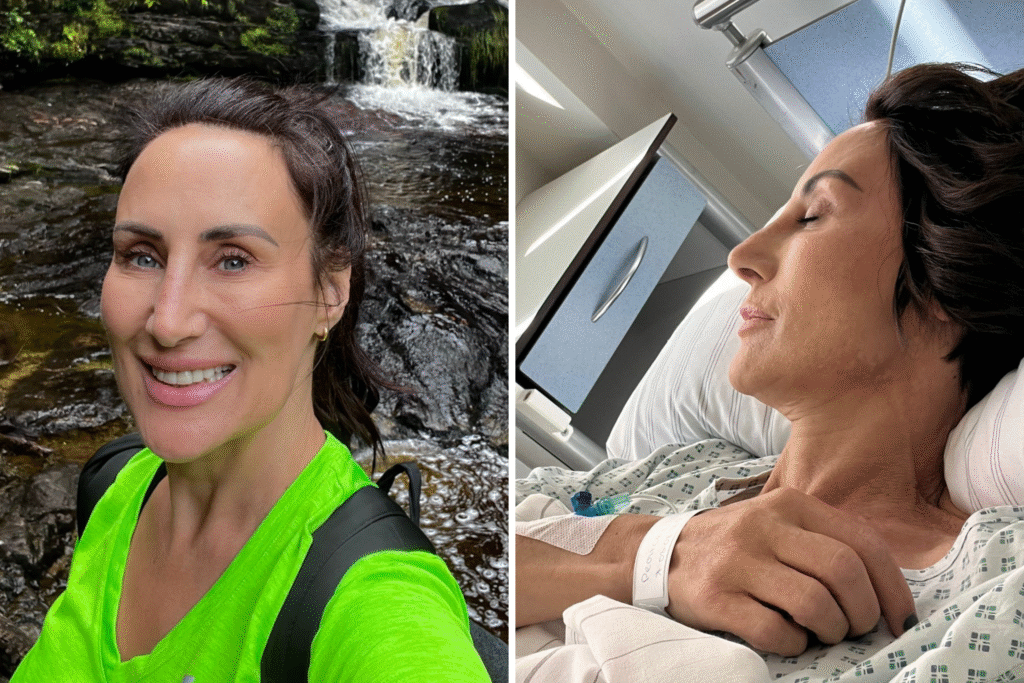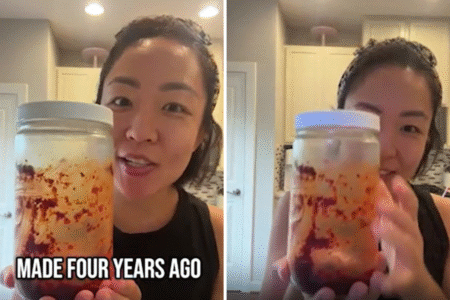I was 50 years old when a doctor looked me in the eyes and said I had just four to six weeks left to live. Nothing can prepare you for that moment. I was in shock.
Just weeks earlier, I had been on holiday. But, shortly after I returned, a wave of exhaustion hit me. I brushed it off—after all, I was a business owner, a mom of six, and navigating a separation. Of course, I was tired. Life was full on, and I assumed it was simply catching up with me. Cancer never even crossed my mind. I had already beaten it once.
In 2018, I was diagnosed with Stage II breast cancer and went through eight rounds of chemotherapy and 25 rounds of radiotherapy before getting the all-clear. I was monitored annually—but only my breasts. No one looked anywhere else.
But cancer recurrence doesn’t always return to where it started. Sometimes, it creeps back, silent and unseen, until it spreads somewhere new. And, in my case, it came back with a vengeance.
After nearly five cancer-free years, I was told in August 2023 that I had Stage IV cancer. It had overtaken 85 percent of my liver. It had metastasized into my bones and there was a tumor in my lung.
The public health system in England offered me palliative care. It was a death sentence I wasn’t willing to accept. I wasn’t ready to leave behind my six children: Matt, 35; Will, 24; Hannah, 19; Alfie, 17; Oscar, 14; and Evie, 13.
I’d spent my life juggling parenting, building businesses, staying fit, and doing everything I thought a “perfect” mom and wife should do. I didn’t want my story or my children’s memories to end in a hospice.
With the help of a friend, I found a lifeline: a specialist for radiotherapy-radiation oncology in Frankfurt, Germany—Dr. Thomas J. Vogl, who was known for treating advanced cancers that others wouldn’t touch.
Just three weeks after my diagnosis, I left for Germany. I said goodbye to my children, terrified that it might be for the last time. My ex-husband, who is still a great friend, came with me. I could barely sit up. Even speaking was difficult.
At the clinic, Vogl told me plainly: “No one in your condition would normally be treated. But I’ll give you a chance.” There was a risk the treatment itself could kill me, but I had nothing to lose.
Vogl began a procedure called transarterial chemoembolization (TACE). It is a minimally invasive treatment that involves delivering high doses of chemotherapy directly into the blood vessels feeding the tumor, through the hepatic artery. Then, the blood supply to the tumor is intentionally blocked, or “embolized,” to trap the chemotherapy in the tumor and starve it of nutrients. This targeted approach allows the treatment to be more concentrated in the tumor.
Vogl told Newsweek: “We are using Transarterial chemoperfusion (TACP) and TACE for a lot of different organs, mainly the liver, but also lungs, pelvic, brain and extremities.”
He added: “This patient is a real miracle.”
An NHS England press officer told Newsweek: “TACE are treatments for primary liver cancer. Primary liver cancer is different to cancer that spreads to someone’s liver from somewhere else in their body. This is called secondary liver cancer or liver metastases.”
I flew back home the very next day, and I didn’t tell the NHS. They had warned me not to go. I knew it was risky—they wanted to treat me systemically, not locally. But I believed in my gut that I had to try.
Naively, I agreed to systemic chemotherapy, too. In hindsight, it was a mistake, but I was scared and desperate.
Within weeks, I had sepsis. My body went into free-fall. I was on 24-hour care, and my body was turning on itself.
Somehow, I pulled through. And just four weeks later, I was strong enough to return to Germany for my second TACE session.
This time, I knew I had to do more than just attack the cancer. I had to rebuild my body, too. I had testing done to identify every deficiency. I focused on gut health, inflammation, and nutrient absorption. I cut out alcohol and red meat.
I installed a sauna in my house and used it several times a week to detox. I hired an oxygen chamber and started hyperbaric therapy. I switched to filtered water, practiced Zen Buddhism, and committed to mindfulness. I trained my mind as hard as my body.
Over 11 months, I underwent 11 TACE sessions. Each trip cost around $6,790, but it was worth every penny. After each one, I had an MRI. My tumors shrank by roughly 10 percent each time. After the second session, the tumor in my lung vanished.
Even my U.K. oncologist, who was initially skeptical, was amazed by the progress; however, they had no idea until February 2024. I had to come clean as I got sepsis for the third time, and I stopped oral chemotherapy as it was too much for my body. But my oncologist told me they now supported my choice.
In April 2024, scans showed the cancer had stopped spreading through my pelvis, spine, hips, and ribs. In August, after my final TACE session, I was scheduled for microwave ablation—a treatment reserved for when tumors are nearly gone.
It is a minimally invasive procedure that uses high-frequency microwave energy to generate heat, which destroys cancerous tumors and cells. The term “ablation” refers to the destruction or removal of tissue, and “microwave” refers to the method of energy delivery.
After the procedure, Vogl’s assistant said something I’ll never forget. “It was a perfect procedure and perfect result,” as the tumor had completely gone.
I wept.
My blood-cancer markers—which had once been over 5,000—have dropped into the 70s, and my last test showed a CA 15-3 of 29 (which is within the normal range of <30 U/mL for this tumor marker that is mainly used to monitor breast cancer treatment or recurrence, though it can also be elevated in other cancers or noncancerous conditions like endometriosis and autoimmune diseases).
Vogl and my oncologist believe this dramatic result could be due to the abscopal effect—an incredibly rare immune response where local cancer treatment triggers the immune system to eliminate tumors elsewhere in the body. It’s rare, but not impossible. I believe the strength of my immune system played a role.
My last treatment was in September 2024. I still live with complications—particularly ascites, a fluid buildup in the abdomen linked to a compromised liver. I drain a liter of it each day. But I’ve lived with it for 20 months. My UK oncologist says he’s never seen someone survive this long with it.
I had a scan in Germany at the start of this month, and I was given the all-clear. It seems I have achieved the impossible with TACE and a holistic approach to support my body through recovery.
But I no longer let cancer define my life. I don’t want my children to remember their teenage years as one long hospital stay.
I cook, clean, drive, and do school runs. I train with a personal trainer three times a week to rebuild muscle after being bedbound. I’m no longer trying to be perfect—just present.
I regularly share my journey on TikTok at @lauralucy72, where my videos often go viral and have even reached millions of views. I want people to know they have options. Traveling overseas for treatment can be expensive, and I understand not everyone has the money. But if people don’t know these options exist, they lose the chance to try to fundraise or find the resources they need.
Read the full article here

















